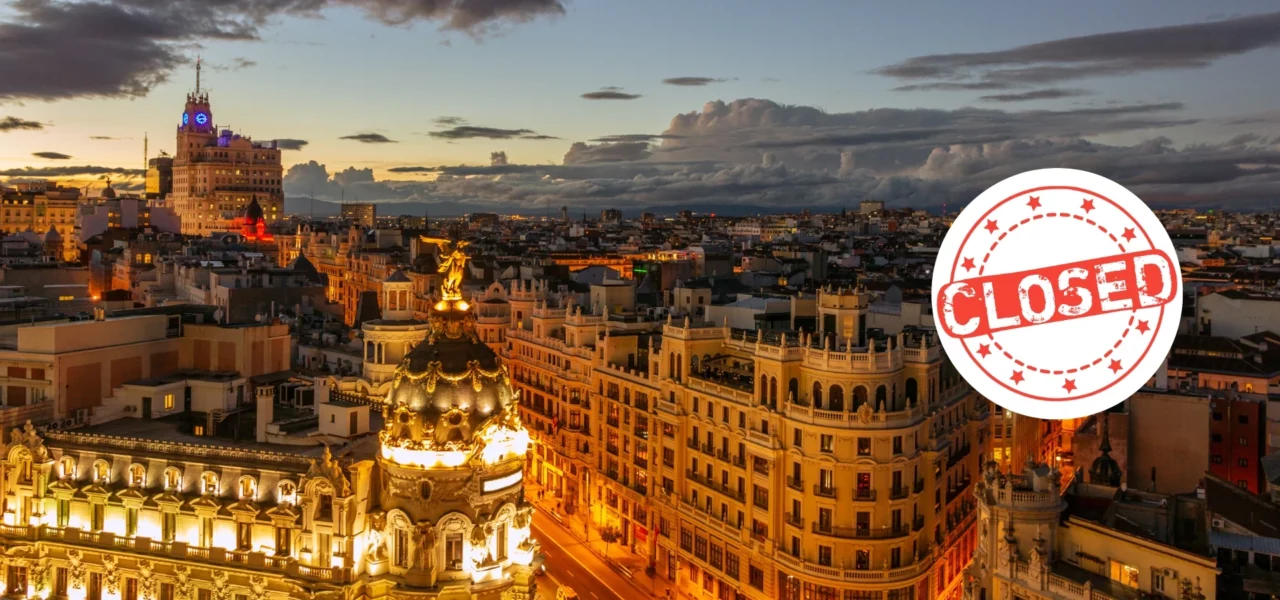
Greece
Greece Golden Visa
€250,000 + costs
Real Estate Investment
European Residency
EU Schengen Zone Travel

10 April 2025
On 3rd April 2025, Spain officially closed its long-standing Golden Visa program. First launched in 2013, the initiative allowed non-EU investors to gain residency by investing in Spanish real estate – typically with a minimum purchase of €500,000. Over its 12-year run, the program attracted more than 15,000 investors and generated billions in foreign capital.
The Spanish government cited growing concerns around housing affordability and supply. As the program was heavily tied to real estate investment, officials argued that continued foreign demand, particularly in major cities and coastal areas, was contributing to inflated property prices and reduced access for local residents. The closure reflects a wider European trend of tightening investment migration programs in response to domestic pressures.
Alongside the termination of its Golden Visa programme, Spain’s Prime Minister Pedro Sánchez has announced a controversial new proposal: a 100% tax on property purchases by non-EU residents. This measure aims to discourage foreign real estate investment and make housing more accessible for locals. In 2023 alone, over 27,000 properties in Spain were bought by non-residents, underlining the significant international demand.
However, the proposal has drawn strong criticism. While it may help ease housing pressure in the short term, many argue it is short-sighted. A sharp drop in foreign investment could have a knock-on effect across Spain’s economy – particularly in areas reliant on international buyers – with potential slowdowns in real estate, construction, tourism, and related services.
It’s important to note that this tax is not yet in force. It remains at the proposal stage and must go through multiple parliamentary steps before becoming law. This process could take several months or even over a year, and the measure may still be amended or withdrawn entirely.
With Spain’s Golden Visa program now officially off the table, investors must explore other European options. Here are the top alternatives:
Portugal’s Key Benefit: After 5 years, investors can apply for Portuguese citizenship, offering one of the fastest routes to an EU passport via a Golden Visa program. The icing on the cake, is that applicants only need to reside in Portugal for 7 days per year to qualify, a unique benefit which is unheard of in most other EU countries.
Portugal’s Golden Visa remains Europe’s premier residency by investment program, offering the fastest path to EU citizenship (just 5 years) alongside tax benefits through the NHR regime. The program also includes family members and provides access to Portugal’s low-cost yet high-quality of life and mobility to the Schengen Zone. With flexible investment routes like private equity funds, it appeals to global investors seeking long-term security and mobility. Explore current Portugal investment options.
EU immigration policies are evolving, and other countries may follow Spain’s lead. Secure your residency investment before rules tighten further! Our team at La Vida stays updated on all program changes and can guide you through the best remaining options – whether you’re considering Portugal, Greece, Malta or other alternatives in regions such as the Caribbean.